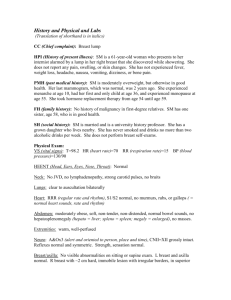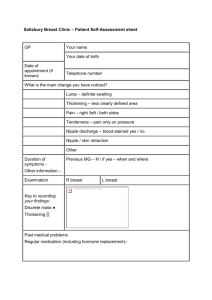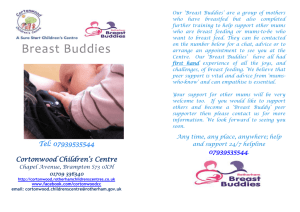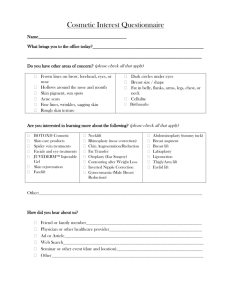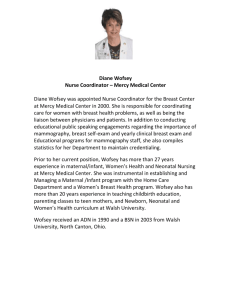Older Women`s Experience of Breast Cancer Alongside other Health
advertisement
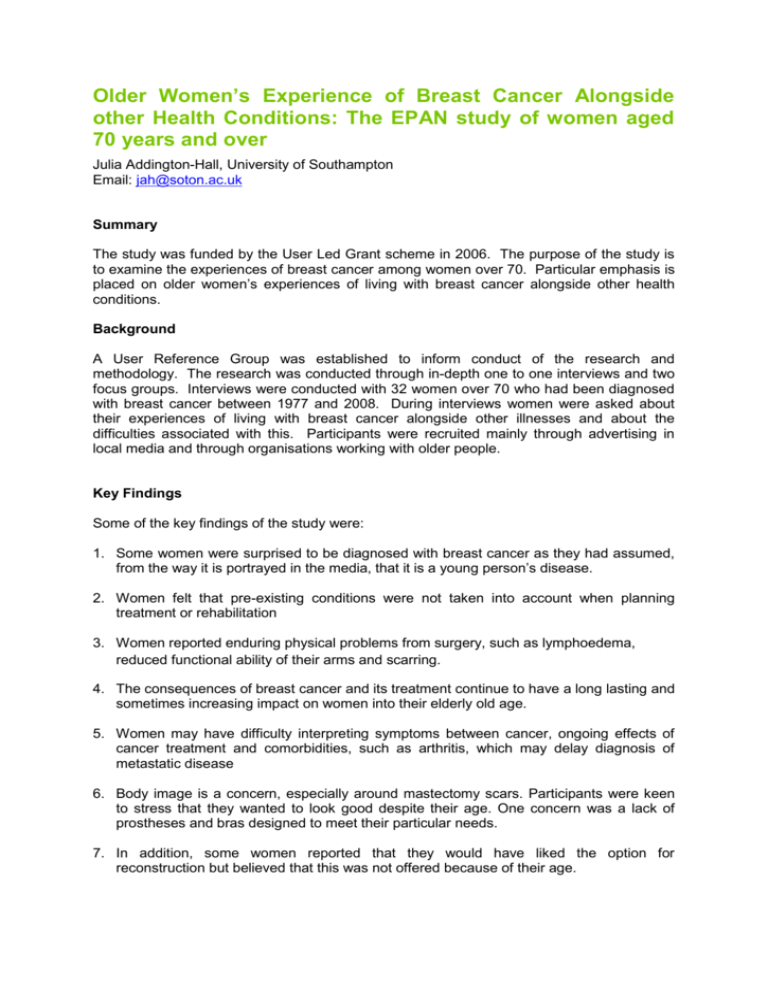
Older Women’s Experience of Breast Cancer Alongside other Health Conditions: The EPAN study of women aged 70 years and over Julia Addington-Hall, University of Southampton Email: jah@soton.ac.uk Summary The study was funded by the User Led Grant scheme in 2006. The purpose of the study is to examine the experiences of breast cancer among women over 70. Particular emphasis is placed on older women’s experiences of living with breast cancer alongside other health conditions. Background A User Reference Group was established to inform conduct of the research and methodology. The research was conducted through in-depth one to one interviews and two focus groups. Interviews were conducted with 32 women over 70 who had been diagnosed with breast cancer between 1977 and 2008. During interviews women were asked about their experiences of living with breast cancer alongside other illnesses and about the difficulties associated with this. Participants were recruited mainly through advertising in local media and through organisations working with older people. Key Findings Some of the key findings of the study were: 1. Some women were surprised to be diagnosed with breast cancer as they had assumed, from the way it is portrayed in the media, that it is a young person’s disease. 2. Women felt that pre-existing conditions were not taken into account when planning treatment or rehabilitation 3. Women reported enduring physical problems from surgery, such as lymphoedema, reduced functional ability of their arms and scarring. 4. The consequences of breast cancer and its treatment continue to have a long lasting and sometimes increasing impact on women into their elderly old age. 5. Women may have difficulty interpreting symptoms between cancer, ongoing effects of cancer treatment and comorbidities, such as arthritis, which may delay diagnosis of metastatic disease 6. Body image is a concern, especially around mastectomy scars. Participants were keen to stress that they wanted to look good despite their age. One concern was a lack of prostheses and bras designed to meet their particular needs. 7. In addition, some women reported that they would have liked the option for reconstruction but believed that this was not offered because of their age. 8. They stressed that they were not a homogenous group and that assessment of their needs should be holistic and personalized, with recognition of the possible complexity of needs because of the physical and social effects of ageing. 9. Participants saw follow-up appointments at hospital clinics as an important source of support and information and were predominantly negative about these coming to an end Why is this work important? Over 40,000 women are diagnosed with breast cancer in the U.K. each year and more than one third of these are women aged over 70. There is a growing body of research about women’s experience of living with breast cancer but the experiences of women over 70 have largely been neglected. Older women have less knowledge of breast cancer and fewer avenues for social support. It has also been demonstrated that existing information and support opportunities are less likely to be used by women over 70. In addition, older women often report lower levels of quality of life, with only 25% of cancer survivors over 80 describing their health as good. Improved information and support could, therefore, be important in improving quality of life for older women with breast cancer.

